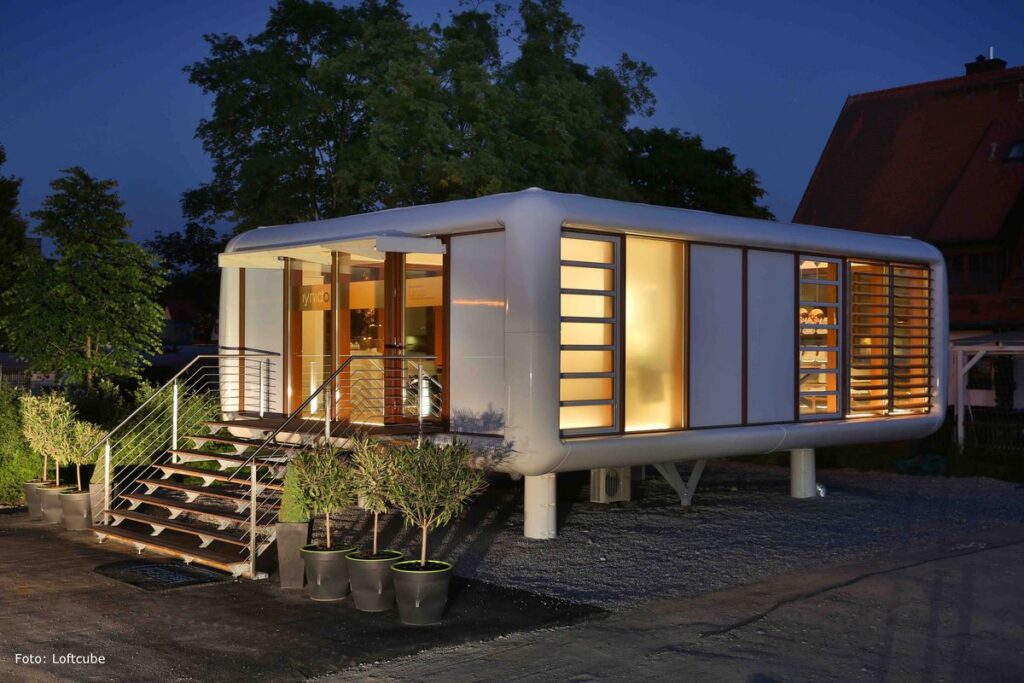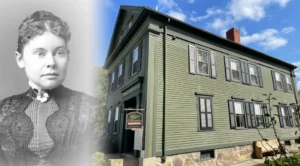The concept of portable houses has gained significant attention in recent years, offering an innovative and practical solution for modern living. As the world becomes increasingly mobile and flexible, the demand for portable housing options is on the rise. Whether for those seeking an affordable alternative to traditional homes, those living off the grid, or simply individuals desiring mobility, portable houses provide a unique solution. In this article, we will explore the benefits, types, and future potential of portable houses, along with their impact on the housing market.
What Are Portable Houses?
Portable houses, as the name suggests, are homes designed to be easily moved from one location to another. These homes are typically smaller, more compact, and come in various types of structures, such as modular homes, tiny homes, and even prefabricated trailers. What sets portable houses apart from traditional homes is their flexibility, ease of relocation, and often lower cost.
While traditional homes are fixed to a foundation, portable houses can be relocated with relative ease, making them ideal for those who may need to move frequently. Whether for work, lifestyle, or personal reasons, owning a portable home means that you can take your living space with you wherever you go.
Types of Portable Houses
Portable houses come in a variety of forms to cater to different needs, preferences, and budgets. Some of the most popular types of portable homes include:
1. Tiny Homes
Tiny homes have surged in popularity in recent years. These are small, often mobile homes designed to maximize space while minimizing living costs. Tiny homes usually range between 100 to 400 square feet and are built with sustainable materials. They can be placed on trailers for easy mobility, and many feature eco-friendly appliances and systems.
2. Modular Homes
Modular homes are prefabricated homes made in sections, which are then transported to the desired location and assembled. These homes offer flexibility in design and layout, and while they are portable, they are typically intended for semi-permanent installation. The modular home industry has expanded significantly in recent years, with many manufacturers now offering customizable options for buyers.
3. Prefabricated Trailers
Prefabricated trailers are another common form of portable housing. These trailers, often referred to as mobile homes, are typically constructed in a factory and then transported to a desired location. While not as customizable as modular homes or tiny homes, prefabricated trailers offer an affordable, quick housing solution, especially for those seeking temporary or mobile living arrangements.
4. Shipping Container Homes
Shipping container homes are becoming an increasingly popular form of portable housing. These homes are made by repurposing used shipping containers and transforming them into livable spaces. Shipping container homes are sturdy, eco-friendly, and can be easily moved from one location to another. They can be customized to suit a variety of needs, offering both functionality and mobility.
Benefits of Portable Houses
Portable houses offer a wide range of advantages compared to traditional, stationary homes. Here are some key benefits of choosing a portable house:
1. Flexibility and Mobility
The primary benefit of portable houses is the freedom they offer in terms of mobility. Whether you’re a traveler, a remote worker, or someone who simply enjoys moving to different locations, portable homes provide the flexibility to relocate whenever you desire. This mobility can be especially valuable for people who work in seasonal industries or those who prefer to experience new locations without being tied down by a permanent residence.
2. Cost-Effective
Portable houses are generally more affordable than traditional homes. The cost of building or purchasing a portable home is often much lower than buying a conventional house. Additionally, since portable homes are smaller and more efficient, utility costs are also typically lower. For people seeking affordable housing options, portable homes offer a practical solution.
3. Sustainability
Many portable homes are built with eco-friendly materials and energy-efficient systems, making them more sustainable than traditional homes. With a smaller footprint and a focus on energy efficiency, portable houses can significantly reduce the environmental impact of housing. Whether through the use of solar panels, rainwater harvesting systems, or green building materials, portable houses are an attractive option for environmentally-conscious individuals.
4. Customization and Personalization
Unlike traditional homes, which are often limited in terms of design and layout, portable houses offer a high degree of customization. Many portable homes can be tailored to meet the specific needs and preferences of the homeowner. Whether it’s adding extra storage, choosing particular finishes, or even altering the layout, portable homes allow homeowners to create a space that truly reflects their style and needs.
5. Reduced Maintenance
Due to their smaller size and more compact design, portable houses generally require less maintenance than larger, traditional homes. With fewer rooms and less complex infrastructure, the upkeep and repair costs for portable homes are often lower. Additionally, many portable homes are constructed with durable, low-maintenance materials, reducing the need for frequent repairs or replacements.
Portable Houses for Various Lifestyles
Portable houses can cater to a wide range of lifestyles, providing an adaptable housing solution for different groups of people. Here are some examples of who might benefit from portable housing:
1. Digital Nomads
For digital nomads—individuals who work remotely while traveling—portable houses offer the perfect solution. These mobile homes allow digital nomads to move from place to place while maintaining the comforts of a home. Whether living in a tiny home, a mobile trailer, or a shipping container house, portable housing allows these professionals to live wherever they choose without sacrificing comfort or mobility.
2. Off-Grid Living Enthusiasts
Many people are increasingly seeking to live off the grid, disconnecting from modern utilities and infrastructure. Portable houses are an ideal choice for off-grid living, as they can be equipped with solar panels, composting toilets, and rainwater collection systems. By living in a portable home, individuals can enjoy self-sufficient living while maintaining the flexibility to relocate as needed.
3. Temporary Housing Needs
For those in need of temporary housing solutions, portable houses can provide a quick and effective answer. Whether for people in transition, workers on short-term assignments, or individuals needing a temporary place to live during home renovations, portable homes can be set up quickly and moved as needed.
4. Homesteaders and Rural Living
Portable houses are also ideal for people who want to live on large plots of land in rural areas. These homes offer the opportunity for homesteaders to build their dream living space in remote locations while remaining mobile. A portable house provides the option to create a self-sustained lifestyle, whether for farming, gardening, or living close to nature.
The Future of Portable Houses
As the world continues to evolve and change, the future of portable houses looks bright. With advances in technology, the growing popularity of sustainable living, and the increasing need for flexible housing solutions, portable houses are likely to become a mainstay in the housing market.
In the future, we may see even more innovative designs for portable homes, with improved energy efficiency, better insulation, and enhanced mobility. The advent of smart home technology could also make portable houses more comfortable and connected, allowing homeowners to control their homes remotely and manage energy usage more effectively.
Conclusion
Portable houses represent a transformative approach to modern living, offering individuals greater flexibility, affordability, and sustainability. Whether you’re a digital nomad, an off-grid enthusiast, or simply someone seeking a more affordable way to live, portable homes provide a viable solution to many of today’s housing challenges. With their growing popularity and technological advancements, portable houses are sure to play an increasingly important role in the future of housing.






